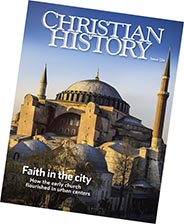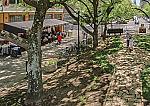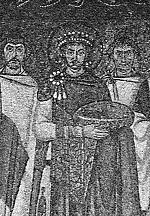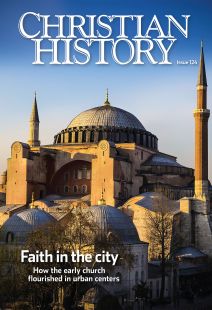“An expanding circle of love and justice”
Christian History: What do you think the future of dialogue is going to look like?
Katelyn Beaty: I recently finished reading The Gospel in a Pluralist Society (1989) by Lesslie Newbigin. It helps us as modern Western Christians to understand how increasingly odd we are going to look to our non-Christian neighbors. We can no longer assume that Christianity has a privileged place in Western society. Nonaffiliation with any kind of faith tradition is up, especially among millennials. This presents a challenge.
In contemporary conversation about how Christians should relate to their neighbors, there is a great mourning and coming to terms with how we have a new responsibility for living out the faith, different than we did 50 to 60 years ago.
We’re compelled to be comfortable with being odd while remaining very familiar. We live in the same neighborhoods, enjoy the same public benefits, the access to roads and parks and everything that makes a civil society. We are not in private Christian communities.
Most of our neighbors are not going to be disciples of Jesus. We should understand our non-Christian neighbors have the same concerns as we do: schools, providing for their families, politics. We should be comfortable with basically living as dual citizens. That’s not my language, of course, but Paul’s (Phil. 3:20). We need to be citizens of this world but also citizens of another world, comfortable with going back and forth between those two kingdoms. The church has been through worse times and has survived and learned to thrive.
 Order Christian History #124: Faith in the City in print.
Order Christian History #124: Faith in the City in print.
Subscribe now to get future print issues in your mailbox (donation requested but not required).
CH: How well do you think Christians are doing this?
KB: It depends who you are talking to. Many white Christian communities are struggling, and probably reacting on some level in fear that the institutions and faith communities that have enjoyed promise and privilege and power in Western society are losing them. When we are being driven with fear, we are not good at meeting needs. Black and immigrant churches in the United States provide a really compelling model of what it looks like to live and thrive on the margins. They’re not mourning the loss of power. There’s an incredible sense of resilience and hope from those communities.
CH: One way of living in these times has been outlined in Rod Dreher’s book The Benedict Option.
KB. The “Benedict option” rightly calls Christians to form deep, long-lasting communities, working out our faith through discipleship, prayer, confession, and fasting in the community setting. It’s a call for the church to be the church. But elements of it continue to engage in the rhetoric of the culture war. I think that, whatever the New York Times thinks about Christians, many non-Christians would be heartened to meet a committed traditional Christian and see the love and hope and charity that permeate our daily life. We shouldn’t think our neighbors are out to get us. Our neighbors may just not know anything about us.
The Christian faith is not just about hospitality, it’s about repentance and confession. It’s a call to a different way of life. The church exists not just for its own sake and its own preservation but for the sake of the world, for the renewal of the world, for the healing of the nations. Believers need to create an ever-expanding circle of love and justice and mercy and righteousness and personal and systemic flourishing. That vision is inherently compelling to a lot of our neighbors.
This article is from Christian History magazine #124 Faith in the City. Read it in context here!
By Katelyn Beaty and the editors
[Christian History originally published this article in Christian History Issue #124 in 2017]
Katelyn Beaty is editor at large for Christianity TodayNext articles
Healing the city
How Christians helped the sick and poor in the Roman Empire’s cities
Gary B. Ferngren“The only stumbling block is the cross”
We spoke to Doug Banister, the pastor of All Souls Church in Knoxville, Tennessee, about how his church does urban ministry.
Doug Banister and the editorsChristian History timeline: the tumultuous life of early urban Christianity
The Christian History timeline for the early church in Roman cities
the editorsThe things that are Caesar’s
How Christians behaved as citizens, soldiers, and public servants
Rex D. ButlerSupport us
Christian History Institute (CHI) is a non-profit Pennsylvania corporation founded in 1982. Your donations support the continuation of this ministry
Donate






